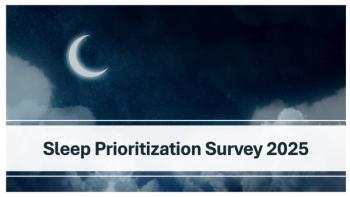
Cognitive Deficits Found in Men With OSA and No Comorbidities
In a recent study, researchers investigated the ongoing argument of what causes cognitive deficits in obstructive sleep apnoea patients, the apneoa itself or associated comorbidities. Researchers compared cognitive performance in a group of 27 middle-aged male patients — ranging from 35 to 70 years-old — with untreated OSA and no comorbidities, to 7 healthy matched patients without OSA
Healthy patients without existing comorbidities who are living with obstructive sleep apnoea (OSA) can experience cognitive changes, aside recent reports arguing cognitive deficits are caused by common cardiovascular and metabolic comorbidities.
OSA is a multisystem, debilitating, chronic disorder of breathing during sleep, resulting in a relatively consistent pattern of cognitive deficits including attention, executive function, episodic memory, and more. These deficits can cause a high prevalence of depression, anxiety and other psychiatric problems, which are only partially remediated by treatment. According to a study published this month in Frontiers Sleep, currently around one-seventh of the world’s adult population, or approximately one billion people, are estimated to have OSA.
There have been numerous studies researching the sleep disorder as it has been observed in people who are overweight, have diabetes and high blood pressure. In these studies, OSA has been associated with cognitive deficits and comorbidities like the ones mentioned above. Notably, the cognitive deficits have been argued that they are driven by common cardiovascular and metabolic comorbidities, rather than by distinct OSA-processes.
In the small pilot study, researchers investigated the ongoing argument of what causes cognitive deficits and found results. To do so, the researchers compared cognitive performance in a group of 27 middle-aged male patients — ranging from 35 to 70 years-old — with untreated OSA and no comorbidities, to 7 healthy matched patients without OSA. Participants were tested using the Cambridge neuropsychological test automated battery (CANTAB), which is a highly sensitive, validated touchscreen-based cognitive assessment. Tested were 11 cognitive domains.
Of the 27 male participants, 11 had severe OSA, 16 had mild OSA and then there was the control group of 7 without OSA. Cognitive deficits resulted in poorer executive-functioning, visuospatial memory, and deficits in vigilance sustained attention, psychomotor and impulse control. Remarkably, for the first time, effects on social cognition in this group of male, middle-aged OSA patients, were reported. The greatest number of differences found were between the controlled group and those with severe OSA. Participants with mild OSA performed better than those with severe OSA on most of those same cognitive tasks and were rarely worse than the controlled group.
Researchers’ findings suggest distinct, OSA-driven processes may be sufficient for cognitive deficits to occur as early as in middle age in individuals who are overall healthy. It’s encouraged by researchers that patients experiencing OSA and its deficits receive urgent attention if untreated.
Though this is a small pilot study, these findings are rather new and unsupported and should be researched further.
Newsletter
Get the latest industry news, event updates, and more from Managed healthcare Executive.























